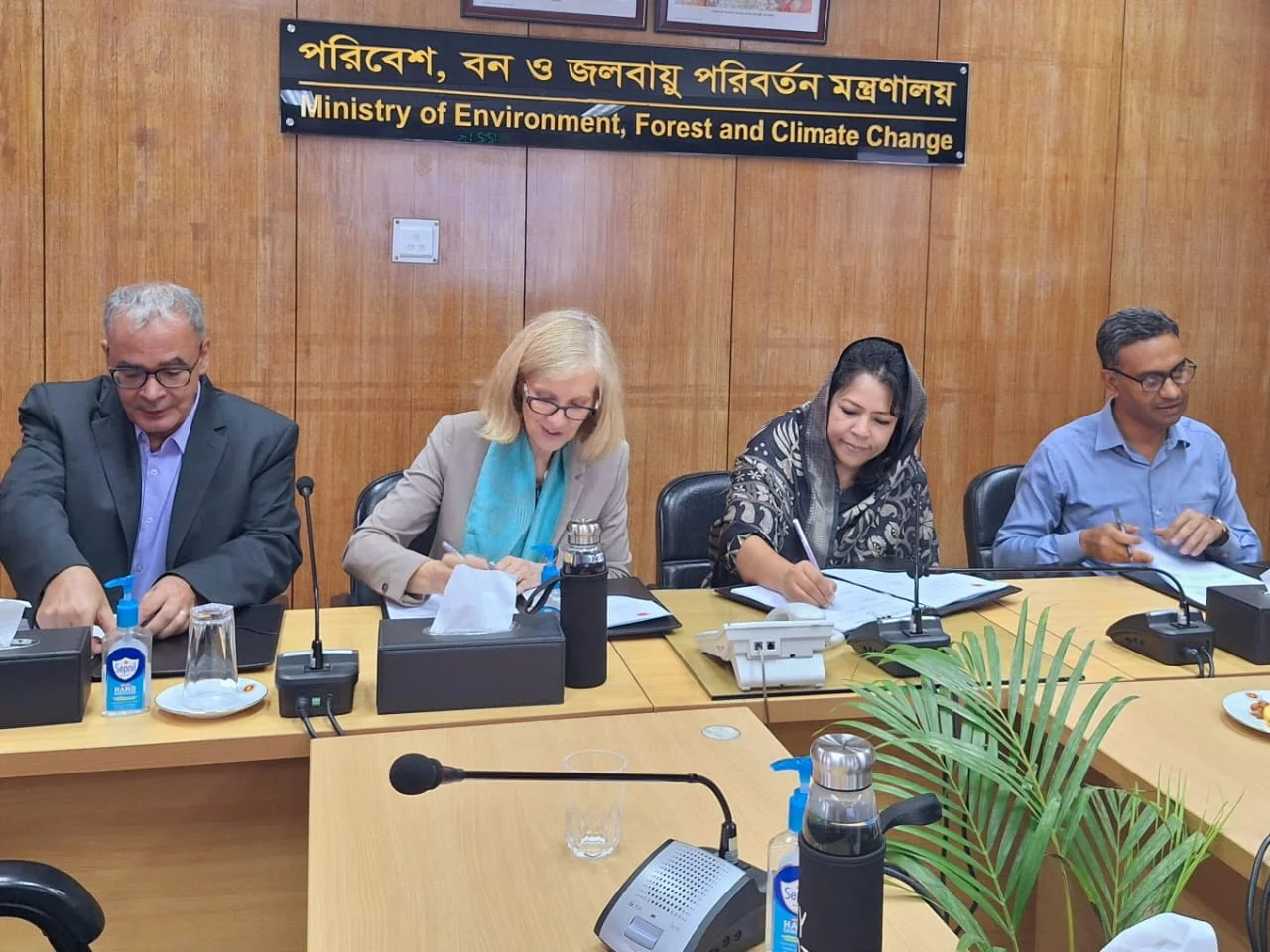Bangladesh and Germany Sign Agreements for Sustainable Management of Sundarbans and Marine Conservation
Share on:

SONG project aims to strengthen marine conservation in Bangladesh
In a significant step towards environmental conservation and sustainable management of the Sundarbans, two crucial agreements were signed Tuesday between Bangladesh and Germany at the Ministry of Environment, Forest and Climate Change in the Bangladesh Secretariat.
Dr. Farhina Ahmed, Secretary of the Ministry, and Martina Burkard, Acting Country Director of the Deutsche Gesellschaft für Internationale Zusammenarbeit (GIZ) Bangladesh, inked the agreements aimed at the sustainable management of the Sundarbans and the Marine Protected Area (MPA) Swatch of No Ground (SONG).
Dr. Farhina Ahmed highlighted the collaborative nature of the Integrated Management of the Sundarbans Mangroves and the Marine Protected Area Swatch of No Ground in Bangladesh (SONG) project, which involves the Ministry of Environment, Forest and Climate Change (MoEFCC) and the Ministry of Fisheries and Livestock (MoFL).
“The SONG project aims to strengthen marine conservation in Bangladesh by improving collaboration and capacity-building among responsible authorities and stakeholders, engaging fishermen, women, and youth in the coastal communities adjacent to the MPA,” said Dr. Farhina Ahmed.
Key objectives of the SONG project include:
- Enhancing planning and surveillance capacities
- Scientific monitoring
- Strengthened knowledge-based decision-making through digital tools
- Heightened awareness and support for marine protection among coastal populations
- Active participation in marine conservation
Additionally, Dr. Farhina Ahmed discussed the SUNDAR-BAY project, "Strengthening Regional Cooperation and Financing for Sustainable Management of the Sundarbans and Restoration of Coastal Ecosystems in the Bay of Bengal in Bangladesh and India," which will be implemented from March 2024 to February 2027. This project focuses on collaborative efforts between Bangladesh and India for the conservation of the Sundarbans.
“The SUNDAR-BAY project aims to improve governmental and non-governmental coordination between the two countries, supporting the conservation of the Sundarbans and the provision of ecosystem services to local communities, especially women and marginalized groups,” Dr. Farhina Ahmed added.
Objectives of the SUNDAR-BAY project include:
- Enhancing institutional capacities
- Promoting joint training programs
- Supporting local communities through sustainable income-generating activities and environmental education
Both projects contribute to the Sustainable Development Goals (SDGs) of Life Below Water (SDG 14) and Life on Land (SDG 15), emphasizing biodiversity and the protection of natural resources. These initiatives reflect the commitment of Bangladesh and Germany to protect vital ecosystems and foster sustainable development in the region.
The collaborative efforts are expected to yield significant environmental, social, and economic benefits, ensuring the preservation of the Sundarbans and the Swatch of No Ground for future generations.

